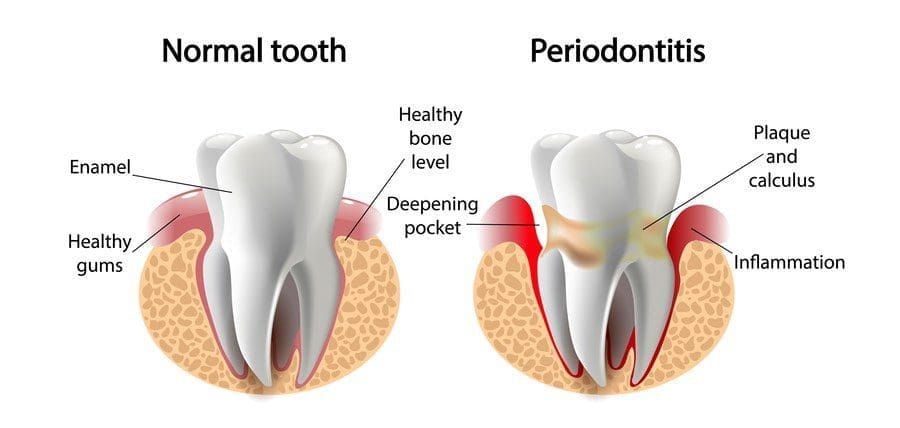How to Prevent and Treat Periodontal Disease
Periodontal disease is a gum infection that can cause serious and long-term damage to your teeth when left untreated. Like most people with this condition, you may not realize you have it until it has caused extensive damage. When you have periodontal disease, gum pockets form and increase the risk of attracting bacteria, plaque, and tartar. Untreated periodontal disease can cause your tooth to feel loose or even require you to have one or more teeth extracted.
Periodontal Disease Can Be Reversed with Deep Cleaning
Deep cleaning is often an effective initial solution to treat periodontal disease. This involves the root planing and scaling of one-quarter of your mouth at a time. The reason for this is that patients can experience numbness and discomfort for several hours after each session. The process of root planing and scaling removes bacteria from your gums and teeth so you don’t develop future infections. It also reverses gum disease that has already started.
Besides removing bacteria from your mouth, deep cleaning reduces gum pocket size and eliminates tartar and plaque. It’s important to keep your teeth free of bacteria, plaque, and tartar for the best oral health possible. Before you go home, your dentist or his or her assistant should discuss best practices for fighting periodontal disease in the future. Using medicated mouthwash every time you brush your teeth and using an electric toothbrush to ensure you loosen plaque, tartar, and bacteria are especially helpful. In the case of severe gum pockets, you may need prescription medication.
Periodontal Surgery May Be Necessary if Conservative Treatments Fail
Although most patients respond favorably to root planing and scaling, for some it’s not enough to prevent the development of new gum pockets. Your dentist may advise you to have periodontal surgery in this case. During this procedure, he or she reshape gum tissue to encourage normal functioning in addition to preventing bacteria, plaque, and tartar from invading.
You should contact your dentist to request an evaluation if you’re concerned that you could have periodontal disease. Dentists typically check for this condition at every preventive care appointment and will schedule a follow-up appointment if you appear to have it. An excellent oral healthcare routine that includes brushing and flossing at least twice a day is the best way to prevent periodontal disease from developing in the first place.
Looking For a Dentist That Has Been Rated a “Top Dentist” in NJ since 2012?
If you are looking for an expert dentist in the field of periodontics, contact Suburban Essex Dental, West Orange, NJ in the County of Suburban Essex. The entire staff are professional and pride themselves on only providing top-notch dental care.
The dental office follows all the guidelines of the CDC regarding COVID-19 as well as now offers virtual dental consultations.







